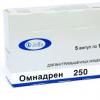The difference between a dietary supplement and a medicine. What are dietary supplements and how do they differ from medicines? The difference between dietary supplements and medicines
The abundance of names in the pharmacy can confuse almost everyone. The price of seemingly identical products can differ significantly. This may be due to the use of raw materials of different prices and quality by manufacturers, as well as different positioning of the drug (medicine or dietary supplement). It is important to understand what we are buying and at what cost, as well as what therapeutic effect we can ultimately expect. Therefore, when selecting a therapeutic agent, it is necessary to clearly determine - Is it a dietary supplement or a medicine?.
Dietary supplements, or dietary supplements for short, appeared on the domestic market in the early 90s of the 20th century. This period for our country was marked by a lot of changes. In politics and finance, in education and medicine, changes have affected, perhaps, every area of life. At this time, foreign goods that were previously in short supply simply poured into the domestic market.
Today, almost everyone has heard at least a little about dietary supplements or has already used them. It is very likely that many have already formed their initial opinion regarding such funds. However, let's take a closer look, How does a dietary supplement differ from a medicine? and what benefit or harm they can bring to our body.
Today, dietary supplements have taken an intermediate position between medicines and food. Such dietary supplements complement our daily diet. They are used to improve well-being, promote health, prevent and even treat diseases, and prevent their complications. In any pharmacy, anyone can buy dietary supplements for weight loss, to increase potency in men, to strengthen joints, to maintain female beauty, etc.
The production of dietary supplements both in Russia and abroad has been put on stream. Multi-storey factories with huge production areas, expensive equipment, hundreds and thousands of employees - all this is involved in the production of dietary supplements.
The production process itself is as similar as possible to the process of making medicines. At the same time, it is impossible to understand with the naked eye whether they are producing drugs or dietary supplements. In reality, their differences are significant, so it is necessary to clearly separate the drugs of these two groups.
Medicines, food, dietary supplements - all this can have both a healing and destructive effect if used incorrectly or uncontrolled.
The benefits of dietary supplements
Everyone knows very well that a person does not receive the proper amount of minerals and other nutrients from food. Thanks to dietary supplements we can eliminate substance deficiency, which improve health and prevent the occurrence of diseases. When using dietary supplements, the following beneficial effects are observed:
- prevention of cardiovascular, gastroenterological, endocrine, gynecological, neurological and other diseases;
- enhancing the therapeutic effect of the medication taken (allows you to take a smaller dosage of the medication while maintaining a pronounced therapeutic effect);
- very mild therapeutic effect in the presence of diseases;
- general strengthening of the body;
- strengthening immunity;
- weight loss;
- maintaining libido and increasing potency in men;
- positive cosmetic effect on skin, hair and nails;
- placebo effect in some diseases.
It can be summarized that Dietary supplement is a necessary remedy for a modern person. Of course, provided the quality of the dietary supplement is good. Thanks to them, a person can receive all the necessary substances that can ensure good health and active longevity.

However, if the quality of the dietary supplement leaves much to be desired, then such a supplement can have a placebo effect and still be beneficial for the body. Otherwise, it will only bring harm.
Harm of biologically active food additives
The negative impact of dietary supplements may consist in the lack of preventive and therapeutic effect, which is declared by the manufacturer. In addition, dietary supplements can cause diarrhea, allergies and even poisoning(as, indeed, any drug). Severe adverse reactions for dietary supplements not typical.
We recommend avoiding dietary supplements produced without the implementation of the system GMP. This system allows you to standardize the composition of drugs. Without the introduction of such a quality system, each batch may differ significantly in composition and properties. And when it comes to plant raw materials, you simply cannot do without GMP standards.
All manufacturers of dietary supplements are very proud that they have passed GMP standardization. Therefore, they will try to indicate this information on the packaging so that you do not miss it.
Requirements for dietary supplements and medications
Almost all dietary supplements contain only plant components, amino acids, and mineral compounds that enter our body along with food. Due to this, dietary supplements are closer to food products. Their production and composition are regulated by technical regulations of the Customs Union and departmental documents of Rospotrebnadzor. In particular, TR CU 021/2011 “On the safety of food products”, TR CU 022/2011 “Food products regarding their labeling”, as well as SanPiN 2.3.2.1290-03, SanPiN 2.3.2.1293-03, SanPiN 2.3.2.1078-01 and others.
It is important to understand that requirements for dietary supplements are identical to those for food products. Therefore, state control authorities carefully check the composition of dietary supplements for the presence of harmful impurities, heavy metals, allergens and carcinogens. Manufacturers don't study clinical effectiveness and therapeutic effect of dietary supplements. This saves some of the money invested in creating the dietary supplement. Therefore, in the end it turns out that dietary supplements are cheaper than medicines. The only thing the manufacturer is responsible for is safety of dietary supplements, since this criterion is regulated at the legislative level.
Requirements for medications are much stricter. They must be both safe for health and have a pronounced therapeutic effect. For these purposes, many years of laboratory and clinical studies on volunteers and other necessary tests are carried out to prove the effectiveness of the drug and the safety of long-term therapy. In addition, the search and creation of a chemical drug substance takes a huge amount of time and money. This is what can explain the difference in price between dietary supplements and medications.
How to distinguish a medicine from a dietary supplement
With the help of simple instructions, you can easily understand what product you have in your hands. You can distinguish dietary supplements from medicines by packaging and instructions for use.
Distinctive features of drugs and dietary supplements
| Sign | Medicine | dietary supplement |
|---|---|---|
| Package | ||
| The presence of the inscription “dispensed with a doctor’s prescription” or “dispensed without a prescription” | + | - |
| The inscription on the packaging or instructions “is not a medicine” | - | + |
| The presence of the formulations “increases immunity”, “strengthens health”, “normalizes sleep”, “removes toxins”, etc. | - | + |
| Registration number (example) | P N557982/22, LSR-679134/20 or LS-379164 | RU.06.15.76.880.S.679825.60.79 (instead of RU there can be, for example, KZ) |
| Instructions | ||
| Indication of the active ingredient (INN) | + | - |
| Availability of all sections: pharmacokinetics, pharmacodynamics, indications, contraindications, route of administration, use during pregnancy, side effects, dispensing conditions | + | - |
You should pay attention to the place where the drug was purchased.Medicines are sold only in pharmacies. At the same time you canbuy dietary supplementin a pharmacy, in grocery supermarkets, in a sports nutrition store, in fitness centers, in specialized online stores. 
It is important to note that some drugs, for example, may be registered And as a dietary supplement and as a medicine. The difference is that some companies check the quality of the resulting complex during clinical trials. Vitamins with medicinal status are the most effective form of vitamins, because their therapeutic properties the effect is clinically proven.
Register of dietary supplements
Any new biologically active dietary supplement, the sale of which is carried out on the territory of the Russian Federation, must undergo mandatory certification, proving its safety. I want to emphasize once again - safety, but not therapeutic effectiveness.
Moreover, if a dietary supplement can be registered in Russia within 2-3 months, then for a medicine this period is at least 9 months (if there is a sufficient clinical base proving therapeutic effect of the drug).
After successful completion of mandatory certification, dietary supplements are included in a special Register of products that have passed state registration. If a dietary supplement is not in this register, then its sale in our country is prohibited. The use of such a dietary supplement is highly not recommended.
You can check the availability of registration in the Rospotrebnadzor database or through the Unified Register of State Registration Certificates of the Eurasian Economic Commission by simply entering the name of the product. If the drug is classified as a drug, you will find it in the State Register of Medicines.
What is better: dietary supplements or medications?
Among these means it is impossible to single out the best or the worst. The fact is that drugs are intended to be clinically proven and effective in treating diseases. Dietary supplements are designed to reduce the risk of diseases and if they are able to have a therapeutic effect, then it is rather weakly expressed. Dietary supplements can reduce your need for medications, but cannot replace them.
“Medicines are intended to treat diseases. Dietary supplements are necessary to prevent diseases or enhance the therapeutic effect of the medicine taken.”
 Of course, whether to use dietary supplements or not is everyone’s choice. We will provide arguments for and against to help you make an informed decision.
Of course, whether to use dietary supplements or not is everyone’s choice. We will provide arguments for and against to help you make an informed decision.
Arguments " BEHIND» Dietary supplements:
- Provide nutrient supply, micro- and macronutrients, which improve health and prevent the occurrence of diseases. It is almost impossible to get the required amount from food.
- Natural composition enriches the body with antioxidants, which protect the body's cells from the aggression of free radicals.
- The possibility of long-term use without harm to health (when using high-quality bioadditives) allows effective disease prevention. And preventing a disease is much more profitable than treating it.
- Price Dietary supplements are lower than drugs.
Arguments " AGAINST» Dietary supplements:
- Negative attitude towards dietary supplements developed in the 90s, when doctors became their main “sellers”. In search of extra income, they forgot that dietary supplements are not a medicine.
- Easy registration leads to low quality supplements entering the market. Manufacturers are trying to squeeze maximum profit out of production. As a result, they often neglect the quality of the raw materials, on which the effect of the drug ultimately depends.
- Misleading patients and even outright fraud. Aggressive advertising attributes healing and even magical properties to dietary supplements, which are not confirmed in practice.
- Sales mainly through pharmacy chains, since the patient can take a dietary supplement for a medicine and be treated only with it.
We recommend that you refrain from purchasing dietary supplements that are distributed network marketing methods. In these cases, a person receives a percentage of the sales of his subordinates. Entrance to such a system, of course, is paid - you need to buy miracle pills for a certain amount. Therefore, attracting new participants is the main goal of such promotion of dietary supplements.
It is best to buy dietary supplements in pharmacies, since all suppliers are large regional and federal organizations. And they are interested in supplying high-quality drugs and dietary supplements. The most popular brands on the Russian market are: Evalar(lower price segment), Nature's Bounty(middle price segment) and Solgar(premium segment).
List of dietary supplements and medications
For your convenience, we have prepared a table with drugs that most often cause problems in patients. Enter the drug you are interested in in the column “ search"and you will understand whether it is a dietary supplement or a medicine.
| This is the medicine | This is a dietary supplement | |
|---|---|---|
| Artra | Cardioactive Taurine | Adenophrine |
| Aquadetrim | Cardiomagnyl | Aevit |
| Actovegin | Karsil | Alkolok |
| Alflutop | Kudesan | Alligator |
| Angionor | Kudesan for children | Arthrocin |
| Arbidol | Legalon 70, Legalon 140 | Bifiform complex |
| Artra MSM forte | Linex | Viscid |
| Atheroclephitis | Linex Forte | Ginkgo Biloba Evalar |
| Afala | Magne B6 | Glycine (dietary supplement) |
| Afalaza | Magnelis | Glucosamine-chondroitin complex |
| Afobazole | Mildronate | Diagenes or Diogenes |
| Acipol | Noopept | Dialife |
| Bifiform | Omacor | Indole forte Evalar |
| Broncho-munal | Omnic | Complivit |
| Venarus | Panangin, Panangin Forte | Arthro-Maximum |
| Viagra | Pantovigar | Neuroslim |
| Vitrum | Piascledine 300 | Troychatka Evalar |
| Vitrum Vision | Polysorb MP | Effex-Neuro |
| Wobensin | Prostamol Uno | Levocarnil |
| Gepabene | Reduxin | Linux for children |
| Hepa-mertz | Reduxin Met | Magnesium B6 (not to be confused with Magne B6) |
| Heptral | Cialis | Normio |
| Ginkum | Sildenafil | Orlium |
| Glycine | Sinupret | Pantocrine Panthea |
| Detralex | Supradin | Prostodin |
| Diabetes | Teraflex capsules | Reduxin light |
| Dibikor | Phlebodia | Reduslim |
| Don | Folic acid (medicine) | Spirulina |
| Impaza | Phosphogliv | Turboslim |
| Indinol Forto | Phosphogliv Forte | Tryptophan Calm Formula |
| Iodomarin | Hilak Forte | Ureline |
| Kagocel | Chondrogard | Femibion 1 |
| Kalcemin | Elevit pronatal | Femibion 2 |
| Calcium-D3 Nycomed Forte | Elkar | Phlebodios |
| Canephron | Ergoferon | Folic acid (dietary supplement) |
| Kondronova | Essentiale forte N | Honda – glucosamine |
Now you can easily determine which drug is a medicine and which is a dietary supplement. With the help of medications, it is possible to effectively treat an already formed disease. Prevention is best done with the help of high-quality dietary supplements.
Natural dietary supplements, or dietary supplements, were invented in order to compensate for the body's needs for vitamins and microelements.
Dietary supplements cannot replace a nutritious diet
They also cannot cure or prevent disease. And unreasonable intake of them in large doses can even cause harm to the body. What are dietary supplements, how are they useful and harmful?
Food, medicine or vitamin?
Not being medicines, dietary supplements are an intermediate link between them and food products. The official formulation defines them as a combination of natural (or identical) active substances intended to be taken together with food or included in food products.
How does a dietary supplement differ from a medicine?
When developing a drug, pharmacists partially “delegate” to it some of the “responsibilities” of the body’s cells. Most drugs are synthesized chemically. The procedure and duration of taking medications are quite strictly regulated.
Dietary supplements are a “cocktail”, all the ingredients of which are predominantly of natural origin.
The regulation of physiological functions and biochemical reactions is carried out by dietary supplements by eliminating the deficiency of a particular nutrient.
You will learn all the details about the difference between dietary supplements and medications from the video:
An important difference between them and medications is the order of prescription. Many medications eliminate the manifestations of an existing disease in a short period of time. Long-term use of dietary supplements helps to “delay” possible diseases for practically healthy people.
How do dietary supplements differ from vitamins?
If we talk about artificially synthesized vitamin-mineral complexes (VMC), then, being medicines, they contain therapeutic doses of active substances, which, entering the body along with food, play the role of “catalysts” that spur biological processes that support vital energy.
In dietary supplements, active substances are present in doses that do not provide a therapeutic effect.
In addition, supplements are not only VMC, but also liquid concentrates, instant teas, protein shakes and isolates.
What are they needed for?
Before answering the question, are dietary supplements good or bad, let us note the main purpose of their purpose - to add balance to the diet.
Judge for yourself: modern agriculture, despite the depletion of the soil, produces a good harvest, which is provided, to a greater extent, by numerous “feedings”. Depleted soil does not have time to “give” the remaining minerals and other substances to early ripening fruits. The same applies to cattle breeding using numerous compound feeds. The result is that the population is deficient in most nutrients. And the benefit of dietary supplements lies in the ability to eliminate this deficiency.
For more details on why dietary supplements are needed, watch the video:
Subtleties of classification
Depending on the direction of action, the Institute of Nutrition of the Russian Academy of Medical Sciences divided dietary supplements into:
- Nutraceuticals. Recommended for people without diseases and people with chronic illnesses as sources of micro- and macroelements, amino acids and proteins, fats, carbohydrates;
- Parapharmaceuticals. They complement drug therapy, support the functionality of individual organs and their systems, and influence metabolic processes;
- Eubiotics or probiotics– sources of living microorganisms useful for maintaining the gastrointestinal tract.
How does it work?
By supplementing food, drugs from each of these groups ensure the health of individual systems or the entire body.
Improvement and “cleansing” of the body

For women, men and children

Are dietary supplements harmful to health?
Despite the many advantages associated with saturating the body with nutritional components, dietary supplements also have their disadvantages. They are subject to certification, which only means the absence of harmful substances. But with unqualified selection, seemingly harmless components of additives can cause harm.
Thus, preparations based on mint threaten miscarriage in a pregnant woman.
The extract of the herb ephedra, which is often present in dietary supplements for weight loss, is close in composition to narcotic substances - it poses a danger for hypertensive patients and people with cardiovascular diseases.
 Some dietary supplements for weight loss can cause problems with the heart and blood vessels
Some dietary supplements for weight loss can cause problems with the heart and blood vessels Taking certain medications based on herbs with estrogen-like effects (licorice, red clover) can cause hormonal imbalance.
Are dietary supplements with vitamin-mineral complexes harmful?
What such dietary supplements will do for the body - harm or benefit - depends on the measure. Excessive doses of drugs with a high content of fat-soluble vitamins (A, E, D and K) inevitably leads to their excessive deposition in the liver.
Excess, for example, beta-carotene, under the influence of cigarette smoke, triggers oxidative processes, the consequences of which can be compared with the harmful effect of smoking two packs of cigarettes per day!
And uncontrollably swallowing “water-soluble” ascorbic acid, instead of increasing immunity, you can get kidney disease.
The main thing that is worth remembering for those who decide to make dietary supplements a component of a healthy lifestyle is that their harm or benefit directly depends on the reliability of the manufacturer. Back in August 2013, Rospotrebnadzor banned the sale of several dozen food additives. Therefore, in order not to fall into the trap of dummies manufacturers, visit the official website of the Federal Service for Surveillance on Consumer Rights Protection and Human Welfare and study the register of dietary supplements that have passed state registration.
Similar materials



Currently, consumers do not experience a shortage of products on store shelves. On the one hand, this is good, but less and less balanced in composition can be found. Due to the use of food additives, our diet has been enriched with various taste sensations, but the content of vitamins, minerals and essential trace elements has sharply decreased.
Now in pharmacy chains you can find a huge number of dietary supplements that are recognized as solving the problem. In this article we will try to figure out what dietary supplements it is.
What are dietary supplements
If you look at it from a medical point of view, they are not mandatory components of nutrition. They are not needed for full life. If a person’s diet is balanced, then he gets everything he needs from the foods he eats.
If there is a deficiency, it is quite possible to change the situation for the better by taking multivitamins, since there are a huge number of them in pharmacies. Then the question arises: dietary supplement - what is it?
Such additives are obtained by extracting from various organic and inorganic complexes. This process is quite lengthy and complex, which requires manufacturers to comply with all production technologies. Since private companies are more often involved in this, it is sometimes not at all profitable for them to comply with all the rules.
Because of this, situations occur when poorly purified substances get into the tablet or they are not there at all. For complete assimilation, it is necessary to observe a combination of components with each other, and this is often not done. As a result, most doctors confidently claim that dietary supplements are practically useless for the body; it is quite possible to live without them.
It’s good if, instead of a useful tablet, the package contains ordinary chalk or a neutral substance, but there are cases when you even come across combinations that are dangerous to health. So think about it after this, BAD - what is it, benefit or harm to the body.
Composition of dietary supplements
All supplements contain various food components and biologically active substances. Among them are the following:
- Squirrels.
- Fats and fat-like substances.
- Vegetable oils.
- Polyunsaturated fatty acids.
- Triglycerides.
- Carbohydrates.
- Vitamins and microelements.
- Enzymes of plant origin.
- Probiotics.
- Bee products and many others.
Despite the fact that dietary supplements can be purchased at any pharmacy completely freely, without a doctor’s prescription, you should think twice before using them. It is better to consult a doctor to weigh the pros and cons, calculate the dosage and need for use.
Classification of dietary supplements
Since they are most often prescribed for medicinal purposes, their classification is based on this use. There are two classes of dietary supplements:
- Nutraceuticals.
- Parapharmaceuticals.
The first group of drugs is intended to eliminate nutritional deficiencies. This includes all synthetic vitamin preparations, amino acids, and polyunsaturated fatty acids. By taking them, you can normalize the diet of both adults and children.

Parapharmaceuticals, or they are also called bioregulators, affect the body differently. They affect the functioning of organs, increase the body’s resistance to various unfavorable factors of the external and internal environment.
Bioregulators have a more powerful and targeted effect. They are usually prescribed for the prevention of various diseases. But very often it is quite difficult to separate these two classes from each other, since the same drugs can belong to two groups at once.
Historical reference
Traditional medicine has always played a major role in the search for remedies and methods of treating various diseases. At the dawn of human existence, this was a common need, since official medicine did not have such development.
Almost until the mid-19th century, medicine relied on the experience and knowledge of folk recipes that had accumulated over centuries. Information was collected and recorded by famous scientists of antiquity, for example, Hippocrates, Avicenna, Galen and many others.
Despite the widespread use of plant objects for treatment, with the development of the chemical industry, they learned to isolate active substances and produce medicines based on them. Gradually they began to displace folk recipes. Currently, we continue to observe this process, with a huge number of new drugs being synthesized every year.

It was assumed that it would gradually cease to be used, but the opposite is true. Modern synthetic drugs result in a large number of side effects.
Again, more and more often, we are trying to get rid of our ailments using folk remedies in order to do less harm to our body. Medicine did not wait long and decided to use it. This is how a new generation medicine appeared - dietary supplements. What is it, briefly, it is the official successor of traditional medicine, only in a slightly different guise.
There are many supporters of the idea that it is dietary supplements that can finally cure a person, and not traditional medicine.
Despite the fact that we have not yet fully figured out whether dietary supplements are good or bad, in medicine they are usually recommended to be used in the following cases:
- To quickly replenish the deficiency of missing substances, for example, vitamins, microelements.
- To reduce caloric intake in order to reduce body weight.
- To satisfy the needs of a sick body for certain substances.
- To increase resistance to adverse environmental factors.
- For preventive purposes to prevent metabolic disorders.
- In order to change metabolism, for example, to speed up the elimination of toxic substances.
- To restore immunity.
- To normalize intestinal microflora.
- To regulate the functioning of the body.
- Many dietary supplements are excellent antioxidants.

Based on this, we can conclude that biological supplements can be prescribed to almost every person; the reason and justification for taking them can always be found.
Principles of using dietary supplements
The use of additives is based on some principles:
- The principle of functionality and consistency. That is, the impact must be complex, since the functioning of organs in the body is directly related to nutrition.
- The principle of phasing. At different stages of the disease, it is advisable to select different supplements. For example, in the first stages it is necessary to urgently eliminate the symptoms of the disease, and at the end of treatment, eliminate the toxic effect of taking medications.
- The principle of adequacy. It is necessary to prescribe dietary supplements, taking into account the nature of the disease and the characteristics of its course.
- Syndromic principle. The prescription of biological additives should be made taking into account those symptoms that are clearly expressed.
- The principle of optimality. When treating or preventing diseases, the dosage must be selected individually.
- The principle of combination. Dietary supplements can be combined with food and other medications.
Analyzing all the principles, we can say about dietary supplements that this is a substance that must be used in combination with other therapy during illness. It is impossible to cure with supplements alone.
Even though supplements are not a drug, there are some rules for taking them.

- You should start taking it with a small dosage to see how the body reacts, and then you can increase it to the one recommended by your doctor.
- For more effective absorption, biological supplements are best taken with food.
- If the dietary supplement contains calcium, it is better to consume it half an hour before or after meals, so as not to affect the acidity of gastric juice.
- If a dietary supplement is prescribed, it is advisable to take it in the first half of the day so as not to disturb night sleep.
- Dietary supplements containing live microorganisms must be stored in the refrigerator and used between meals.
- You should not take more than the dose prescribed by the doctor or the one recommended on the package.
- You cannot take several types of dietary supplements at the same time.
- Biological additives are stored in a dark and dry place. Do not refrigerate unless otherwise specified in the storage instructions.
We considered the question: “Dietary supplement - what is it and how to use it?” Now it is necessary to study the pitfalls of taking such drugs.
Danger and harm of dietary supplements
It is already known that dietary supplements are obtained through a complex technological process; one tablet can contain a whole orange, but its cost will be several times more expensive than fresh fruit. Trying to help their body, some take supplements in large dosages, but all the excess is still excreted, which means our money goes down the toilet.
Here are just some of the dangers that lie in wait when using dietary supplements:

The benefits of dietary supplements
Dietary supplements cannot be taken as medicine; they are a common food additive. Although using it with natural ingredients that our body needs can be beneficial. Taking this into account, it can be noted that dietary supplements can prevent the development of many diseases or assist in their complex treatment.
- For the prevention of certain diseases.
- Replenishment of vitamins and minerals.
- Strengthening the immune system.
- In the complex treatment of chronic diseases.
Differences between dietary supplements and medications
If you ask a pharmacist: “Dietary supplement, what does this mean?”, then most likely he will answer you that these are substances of plant and animal origin, that is, completely natural. There are some features of supplements that distinguish them from medications:

- The active substance is contained in small doses.
- Milder effect on the body.
- Non-toxic.
- The body tolerates them more easily.
- Very rarely cause complications or give side effects.
- Can relieve the toxic effects of drugs.
- Do not accumulate in the body.
After studying this information, you already doubt that dietary supplements are harmful.
You shouldn’t believe everything that is shown and advertised on television, everyone’s body is different, and the reaction to taking dietary supplements can be unpredictable. Take care of your health, lead a healthy lifestyle, and then you definitely won’t need biological supplements.
Today, all kinds of dietary supplements are actively discussed. Some enthusiastically talk about their high effectiveness, others argue that the characteristics of dietary supplements do not allow them to be treated as means that can improve their health. What are dietary supplements and why do they cause such controversial reviews; how much does a dietary supplement cost and can price be considered a quality criterion? Let’s try to figure this out. The characteristics of dietary supplements are clear from their name. The abbreviation stands for “dietary supplements”. This means that these drugs are used as a food additive and taken with it. Their biological activity is determined by their composition. As a rule, these are compounds of animal, plant or mineral origin that can influence various biological and biochemical processes in the body. The question of how much a dietary supplement costs cannot be answered unambiguously. The main thing you should know is that a high price is far from a sign of high quality and efficiency. When choosing, the characteristics of dietary supplements are important, which primarily includes the composition, mechanism of action, manufacturer and seller; Next you should look at the quality of the packaging. Only then should you pay attention to how much the dietary supplement costs. Of course, it is best to take dietary supplements directly from the manufacturer or its official representative, this way you will protect yourself from counterfeits, since counterfeits, at best, are simply useless, and at worst, they can harm the body.
We would like to draw your attention to Transfer Factor, which is, of course, the best dietary supplement. It has no equal in terms of effectiveness, natural composition and safety. It is sold exclusively from official representatives of the 4Life company, so the risk of counterfeits is reduced to zero.
Dietary supplements allowed
People always strive for health and relief from illnesses, and therefore there are many who want to make money from this desire. Today, hundreds of different dietary supplements promise us a long healthy life until old age. But not all promises are worth believing. There are dietary supplements that are approved, that is, tested, safe and approved by regulatory authorities, and there are those whose use can lead to unpredictable consequences. There is an official list, a registry that contains all officially approved dietary supplements. Only drugs included in this register can guarantee the complete safety of the components and clinically proven effectiveness. One of the drugs representing dietary supplements approved and recommended by the Russian Ministry of Health is Transfer Factor. The best practicing doctors have already confirmed its effectiveness and safety.
Dietary supplements are a very popular category of goods, so many people want to build their own business on this, buying dietary supplements in bulk and selling them to interested people. In this case, it is best to immediately contact the manufacturer of the drug, since he will offer the best price for his dietary supplements in bulk, original products and all educational materials. 4Life always supports new distributors, providing them with up-to-date information necessary for sales, as well as large discounts on dietary supplements in bulk.
The difference between dietary supplements and drugs
In order to avoid disappointment when buying any dietary supplement, you should clearly understand the difference between dietary supplements and medications. This is far from  same. Most medications are intended to relieve symptoms of an already developed disease. Dietary supplements are designed to have an active effect on the cells of the body, thereby stimulating them to get rid of the cause of the disease. That is, the main thing that distinguishes a dietary supplement from a medicine is the mechanism, the principle of operation. Medicines often take on many of the responsibilities that body cells must perform. Dietary supplements act completely differently - they force the body's systems to efficiently perform the functions assigned to them. Medicines are less acceptable to the body than dietary supplements. This explains the fact that the duration of taking medications without harm to health is usually a very limited period. The significant difference between dietary supplements and medications is that they can be taken for the rest of your life, and this will only bring benefits to the body. There can be no overdose from dietary supplements, since the body itself knows in what quantity it needs this or that natural component. It is very easy to overdose on medications, which can cause irreparable harm to the body. Addiction goes hand in hand with overdoses, and this is another danger of drugs. Another important difference between dietary supplements and medications is the absence of side effects, with the exception of rare cases of individual intolerance to individual components.
same. Most medications are intended to relieve symptoms of an already developed disease. Dietary supplements are designed to have an active effect on the cells of the body, thereby stimulating them to get rid of the cause of the disease. That is, the main thing that distinguishes a dietary supplement from a medicine is the mechanism, the principle of operation. Medicines often take on many of the responsibilities that body cells must perform. Dietary supplements act completely differently - they force the body's systems to efficiently perform the functions assigned to them. Medicines are less acceptable to the body than dietary supplements. This explains the fact that the duration of taking medications without harm to health is usually a very limited period. The significant difference between dietary supplements and medications is that they can be taken for the rest of your life, and this will only bring benefits to the body. There can be no overdose from dietary supplements, since the body itself knows in what quantity it needs this or that natural component. It is very easy to overdose on medications, which can cause irreparable harm to the body. Addiction goes hand in hand with overdoses, and this is another danger of drugs. Another important difference between dietary supplements and medications is the absence of side effects, with the exception of rare cases of individual intolerance to individual components.
The next important aspect of how dietary supplements differ from drugs is their composition. Medicines are chemically synthesized substances prepared according to a clear formula. Dietary supplements are a cocktail, a healing mixture of natural ingredients. Allergic reactions to them are extremely rare; drug allergies are common.
And the most important thing that distinguishes dietary supplements from drugs is its purpose. Ideally, it is better for a healthy person to start taking dietary supplements in order to resist diseases. Medicines are prescribed after any disease is diagnosed. Prescribing them to yourself for treatment or prevention is an extremely dangerous idea.
Transfer factor is a drug that has no analogues. No immunomodulator or dietary supplement can compare with it in terms of action or effectiveness. Its work is based on a system for transmitting immune information from mother to baby. This is important because all health problems are based on imperfect immunity. Everything that we are trying to correct with the help of medications and dietary supplements can be achieved by Transfer Factor, because it teaches the body’s immune system to work correctly and establishes interaction processes between



















